Kleptomaniacs, coprophages and a scientist fanboy battle a civilisation-devouring sharknado from outer space
Psychiatric treatment of criminals using an alien in a bucket? It’s got to be The Master!
Podcast: Play in new window | Embed
Plot A: An experimental procedure devised by Professor Emil Keller is being tested at the Stangmore Prison. The Keller Machine is meant to extract all evil tendencies from a criminal’s mind and render them harmless. But the Doctor disapproves of the barbaric nature of the device.
Plot B: The world’s first World Peace conference is about to take place in London, and U.N.I.T. is in charge of security. However, the coincidentally concurrent transport of a special nerve gas rocket, may put the proceedings in jeopardy.
Red Thread: It’s The Master across the board!
Listen to our review, in which we discuss a serial that is part Manchurian Candidate, part Clockwork Orange, part Broken Arrow, and wholly bonkers!
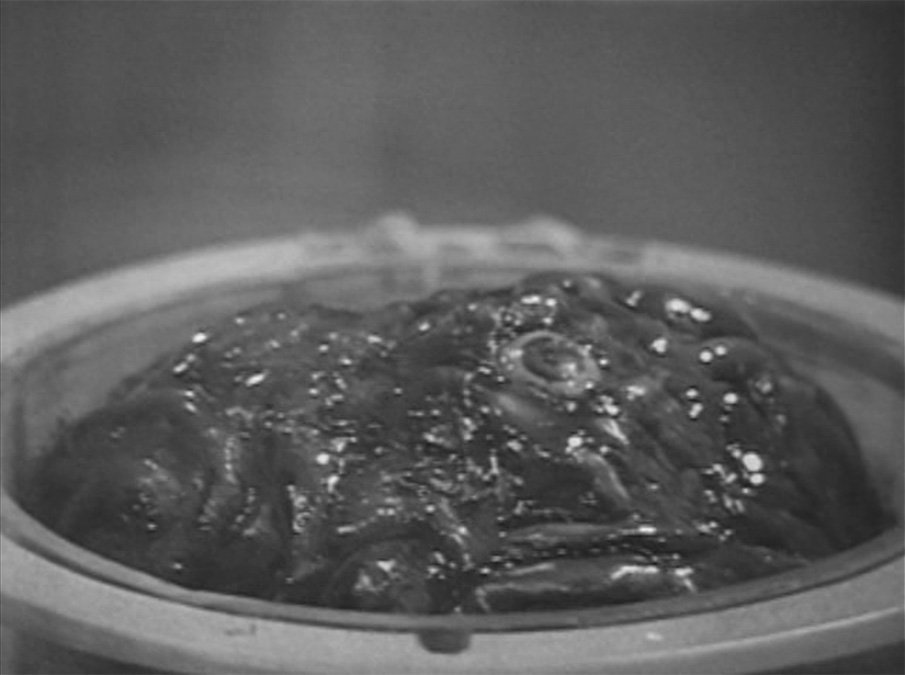

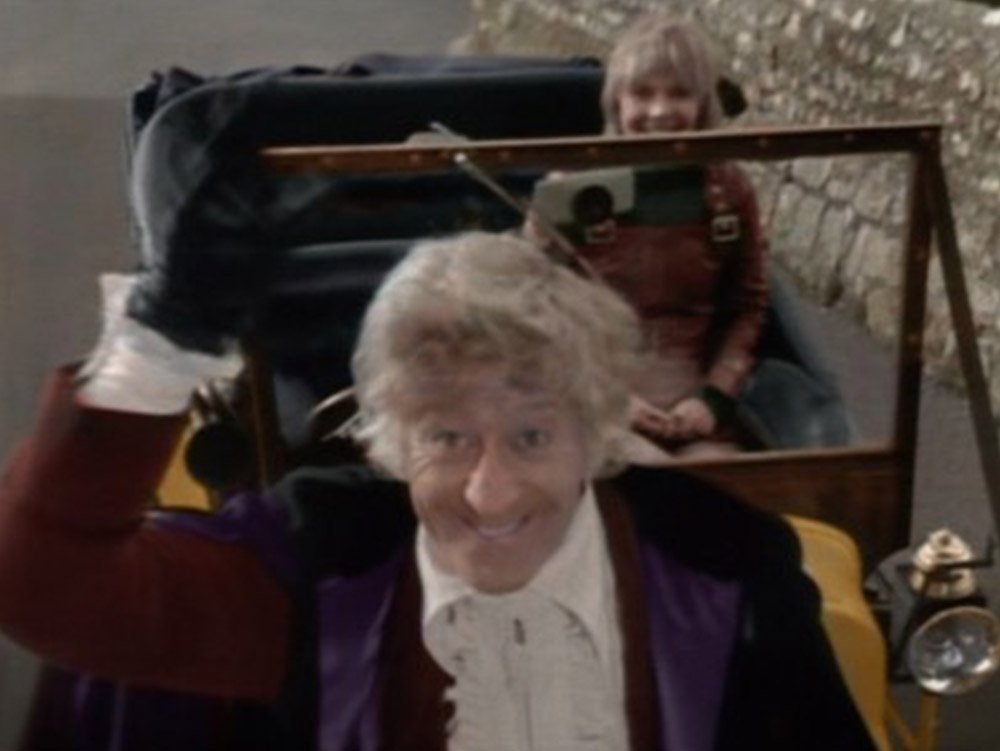

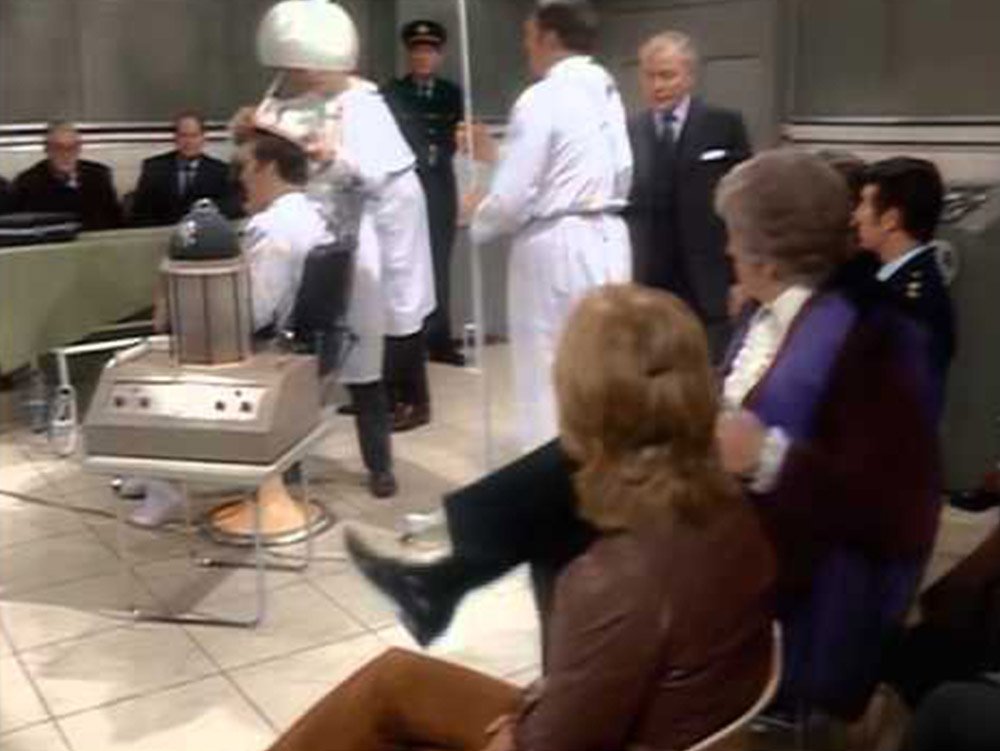

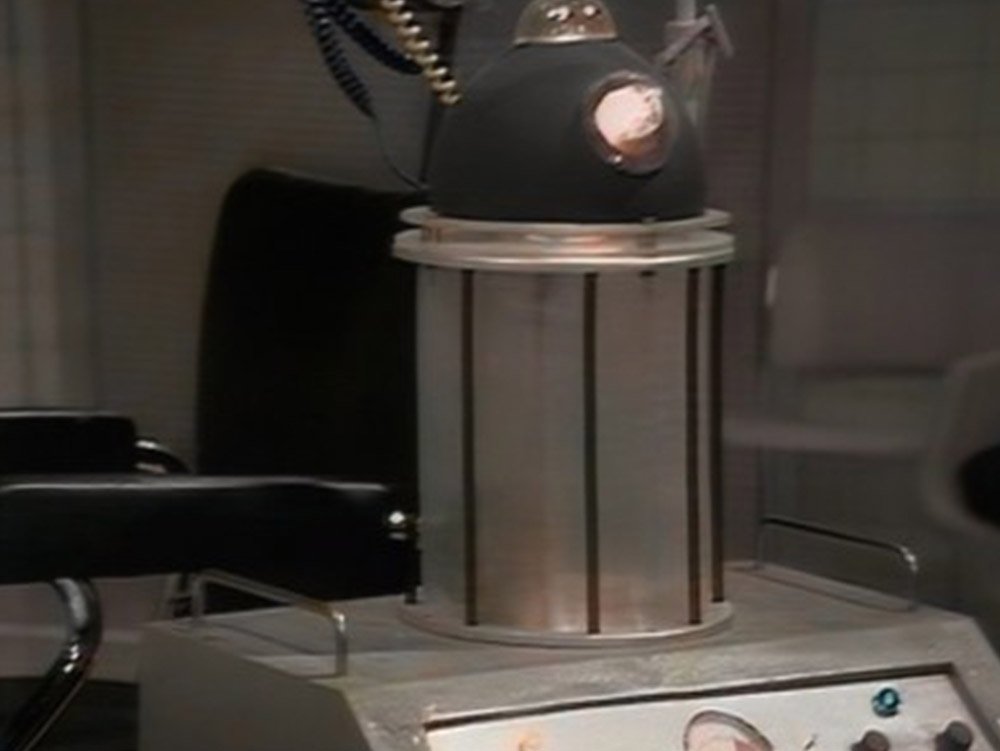

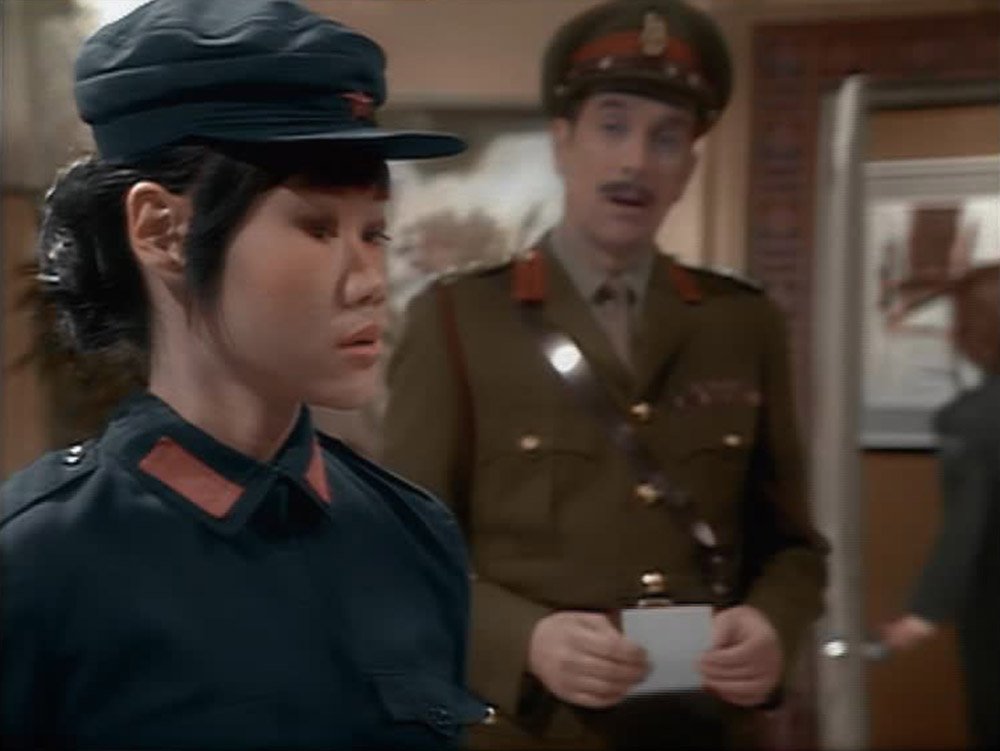

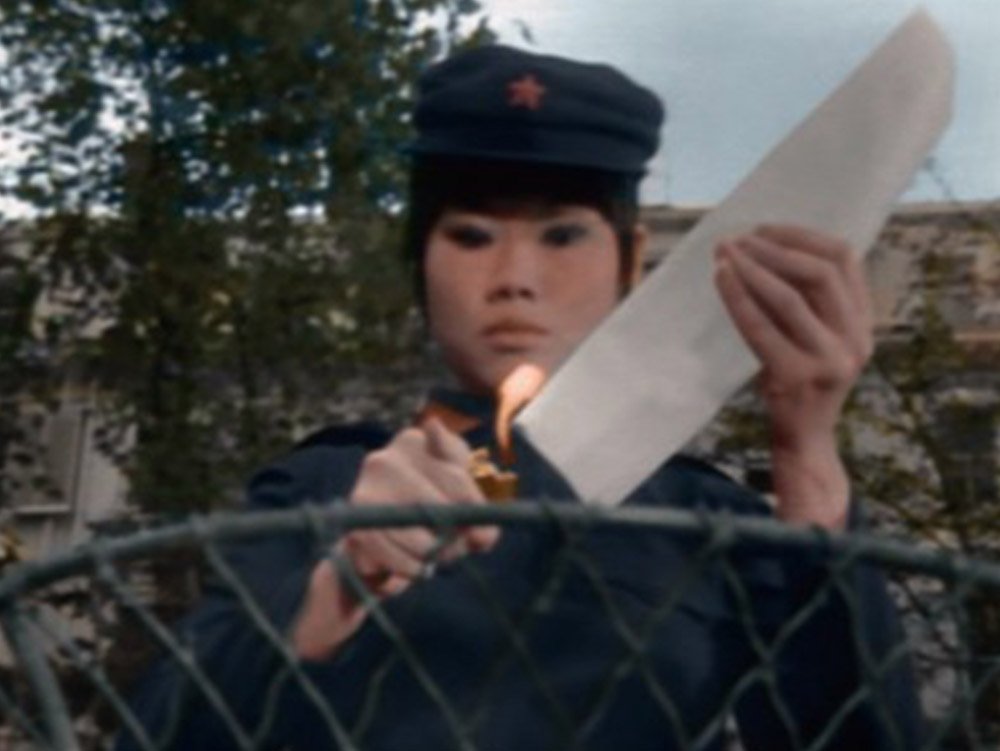

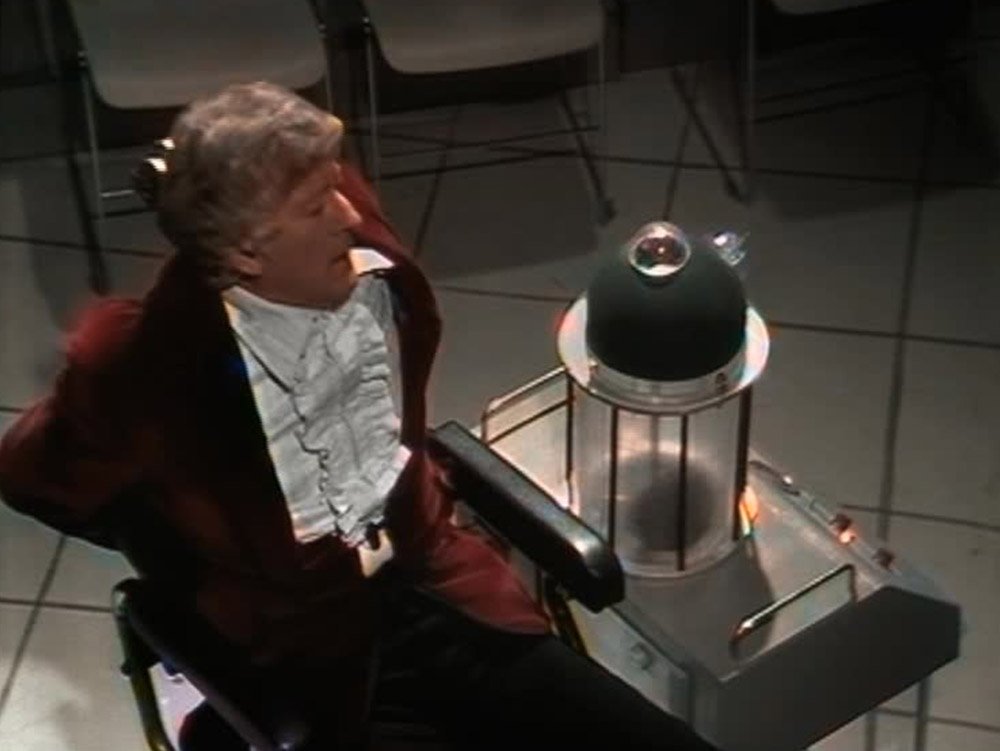

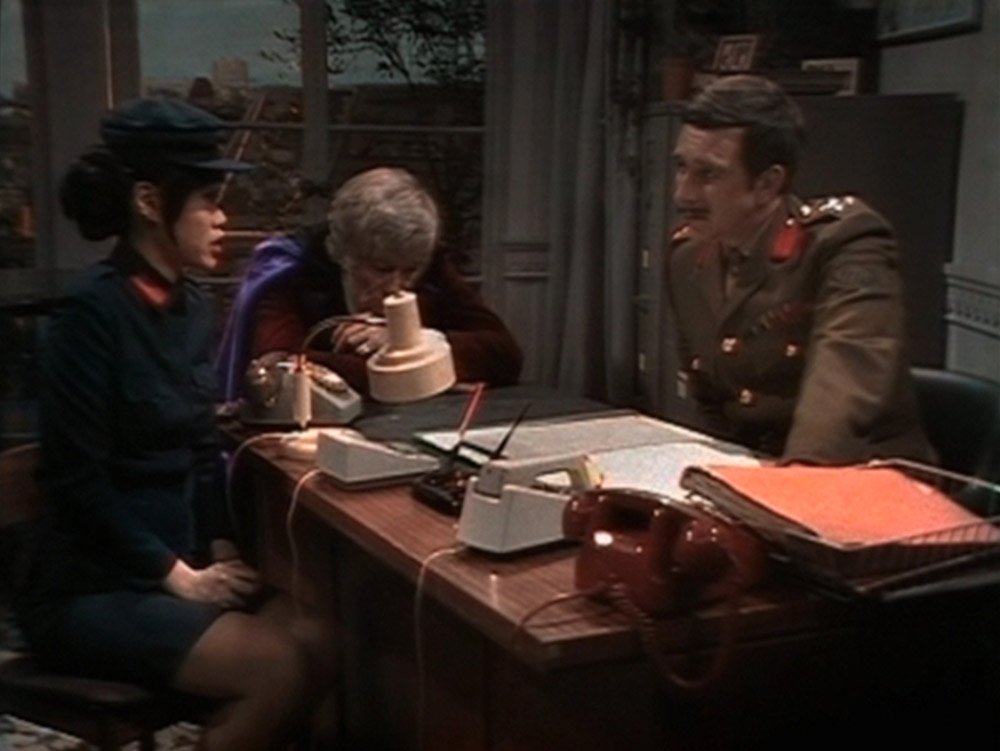

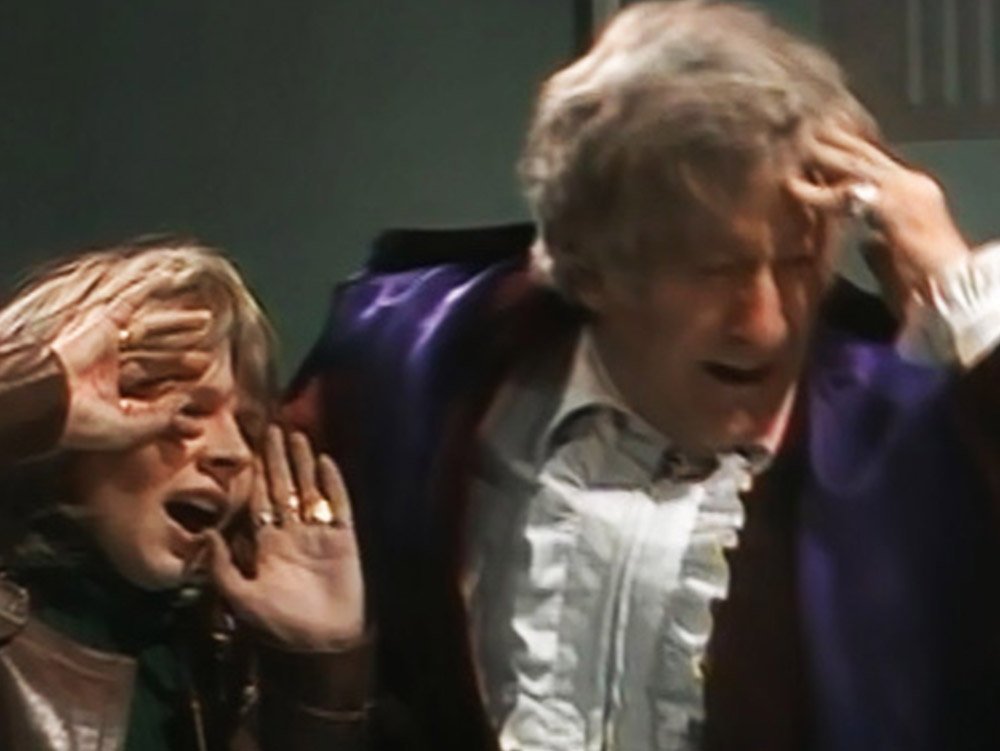

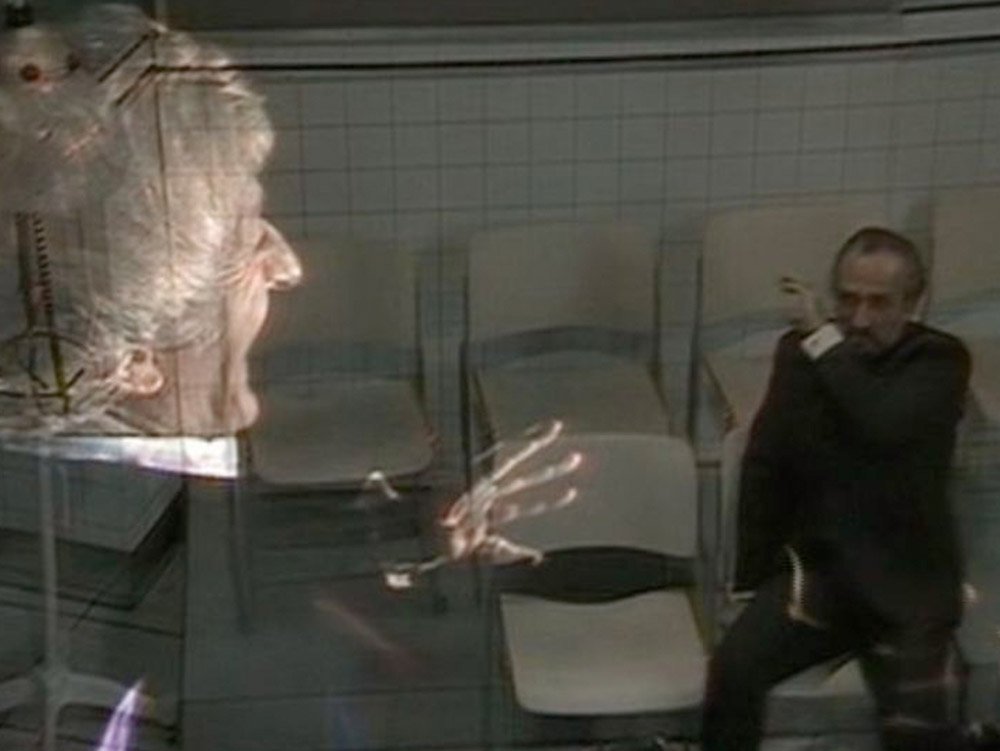

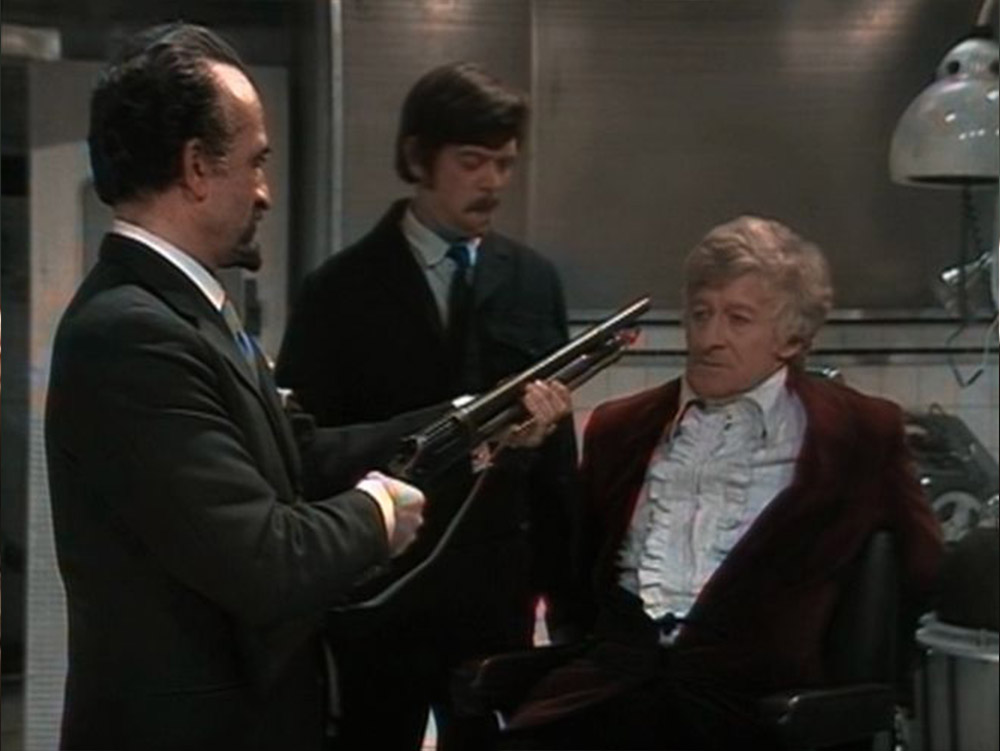

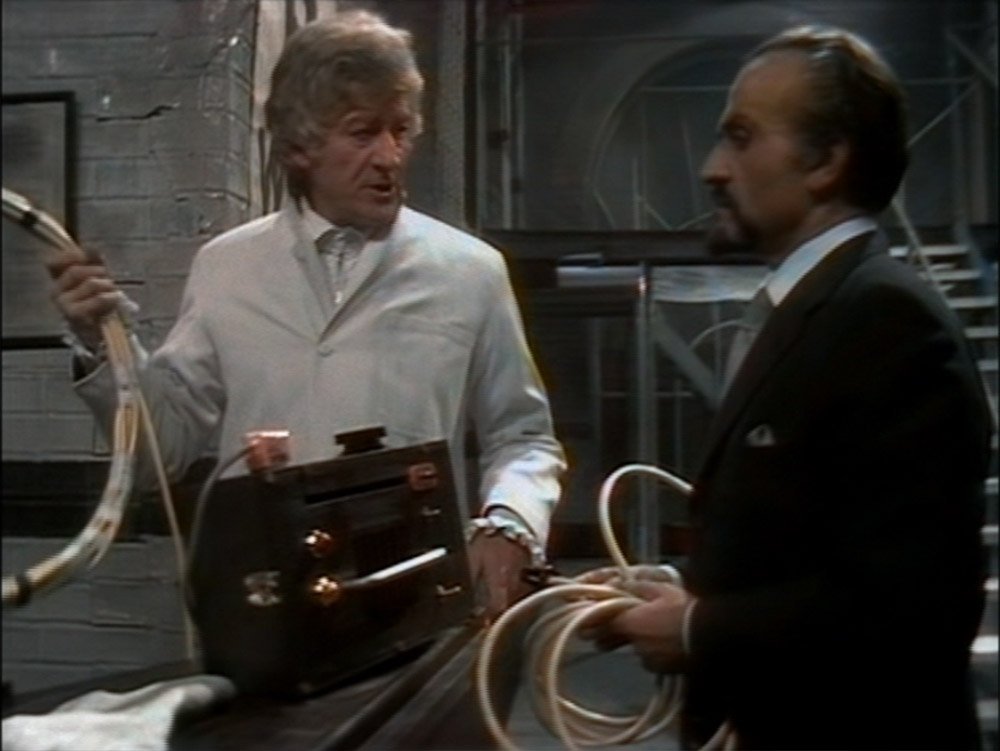

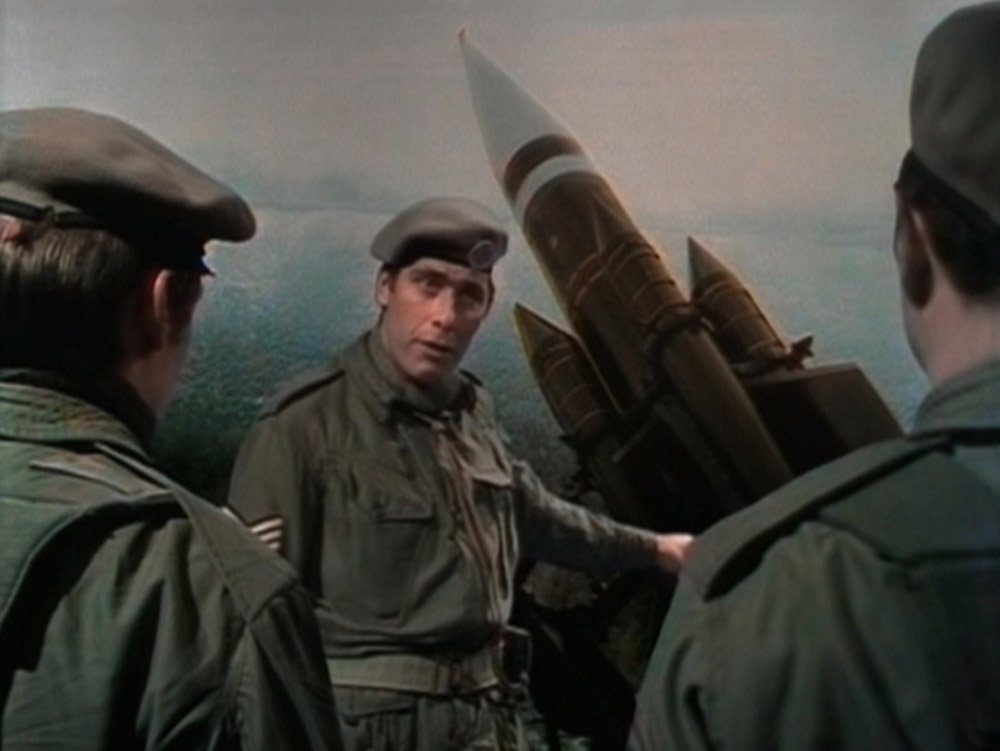


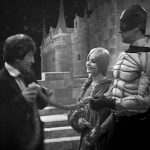
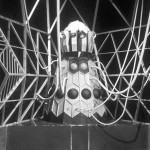







“The Mind of Evil” dealt realistically with DOCTOR WHO’s early 1970s dynamic, the Doctor working as UNIT’s scientific adviser during his exile on Earth, and let time pass between adventures. UNIT handled security at an international peace conference while the Doctor attended a demonstration at Stangmore Prison, where the Keller Machine offered an alternative to execution, removing evil impulses from hardened criminals’ minds. The process worried the Doctor, whose comments to Jo and questions during the demonstration were downright rude. The subject’s violent reaction and two heart attacks near the device, induced by its victims’ greatest fears, validated his concerns.
At the peace conference, Chinese Captain Chin Lee’s complaints bedeviled the Brigadier, who delegated the Thunderbolt missile‘s transportation to his right hand man, Captain Yates, relying on Corporal Bell, in her debut story, to relay reports. Sergeant Benton followed Chin Lee until she attacked him with the Keller Machine and a telepathic amplifier to escape and meet the disguised Master. He monitored UNIT communications and ordered her to kill an American Senator. The Doctor and the Brigadier saved him and worked with the Chinese delegation to lower tension. The Doctor’s understanding and the Brigadier’s ignorance of Chinese culture is an example of an effective storytelling technique famously inflicted upon actor Nigel Bruce. He played Watson to Basil Rathbone’s Sherlock Holmes. In both instances, competent men inaccurately appear to be comical bumblers. Writer Don Houghton used Chin Lee to link the peace conference to the prison. The Doctor realized she was the Master’s unwitting pawn, who helped install the Keller Machine there more than a year earlier while the renegade Time Lord was disguised as Emile Keller.
At the prison in the present, Jo foiled a riot before the Master arrived to orchestrate a takeover. He bribed inmates to capture Thunderbolt, which UNIT transported nearby on an open, flatbed trailer. Using Jo as a hostage, the Master convinced the Doctor to devise a way to control the mind parasite inside the Keller Machine. It was intelligent and grew more powerful as well as mobile by feeding. Deaths at the prison disrupted the Master’s plan to destroy the peace conference with Thunderbolt and take over the world after the inevitable war. He and the Doctor collared the Keller Machine and held it in check while the Brigadier devised a clever plan to gain admittance to the prison, where he believed the stolen missile was. UNIT took control and left Benton in charge while the Keller Machine escaped. The Doctor and Jo learned the prisoner whom they saw survive his encounter with the Keller Machine could keep it from killing. They brought both to an exchange between the Master, who held Thunderbolt, and the Doctor, who had stolen the dematerialization circuit from the Master’s TARDIS, thereby trapping its owner on Earth. The Brigadier agreed to the exchange, but planned to destroy the missile on its launch pad with an abort mechanism he did not know the Master disabled. Once the Doctor reengaged it, the Keller Machine blew up with Thunderbolt. Sadly, the Master killed the machine’s minder while escaping with the circuit the Doctor had never intended to surrender.
They went all out and actually cast a Chinese actress…or the director’s wife who happened to be Chinese. It was still better than watching another racist performance by a white guy. I liked that the Doctor was The Master’s vision/fear and that the Master wasn’t the Doctor’s. I also liked the 2 plots that came together (not as well as in Enemy of the World, but still good). It was also, according to Tardis Wikia, an homage to a favorite book/movie of mine: A Clockwork Orange.
1 question that brings my score down a little: If The Master’s Tardis is out of commission how did he get the mind parasite to the planet? For me a 3.8
Featuring another highly convoluted, gonzo scheme from the Master, the Mind of Evil is fun, but has some pretty huge plot holes. The biggest being, what the hell is this alien and where did the Master get it from, since he hasn’t been able to leave Earth? And how did the Doctor know what it took to kill it despite seeming to know nothing else about it? It sure didn’t look to me like something that would take a nuclear blast to destroy. Still, as an apologist for this particular era of classic Who, I think it’s better to enjoy the antics and not think too hard about it. I give it a 3.8 out of 5 (which I’m sure you’ll find much too high).
Random Thoughts:
-Doc is such a dick in this serial. He immediately berates both BAGLS and Jo right after they each save his life. For some reason, they both seem to find this behaviour endearing. Secret crushes, I suspect.
-Do we know what fire the Doctor refers to when he talks about an entire world burning? It must be off-screen, unless I’m forgetting something. Not until the 4th Doctor hits Traken does an entire world get detroyed.
-So, does all this mind-sucking by the Keller machine leave the Master less evil? Apparently not, but it’s the logical assumption.
-I love the BAGLS/Benton/Yates interplay in this story. I would watch a spin-off about the three of them and their UNIT adventures.
-The third Doctor doesn’t value human life all that highly. He blows off the many, many deaths by saying that the casualties “were all hard cases.” Very compassionate, Doc. Later, when Jo bemoans the death of the friendly giant, the Doctor counters with “How do you think I feel?” What an incredibly self-absorbed, yet still strangely lovable, dude is number Three.
Cheers,
Erin
First off, let’s just forget about the review for a moment and talk about what’s important. The scene with the Doctor, the Brigadier and the Chinese delegate. In all of Doctor Who history there are a few scenes that are better than their weight in gold, diamonds and emeralds. This is one of them. It stands right up there with the “I shall come back” scene, the “They sleep in my mind” scene, The jailor and Citizen scene, Tegan’s departure, Vincent’s sunflowers and more. From blocking to motion to subtle facial nuances, this scene blows me away every time I see it. Surely it belongs in the pantheon of classic Dr Who moments.
While we’re on the subject of great performances, Barnham and especially Mailer are great supporting characters. Barnham is instantly charismatic as the confused child in a man’s body, and Mailer is on all counts someone I would not want to meet in an alley, let alone be at his mercy in a riotous prison. Yates has already come into his own as an actor and the relationship forming between Benton and the Brigadier really begins to grow here, while Joe, the Master and the Doctor are all their usual outstanding. Chin Lee, Dr Sommers and Major Cosworth were also strong players.
The story is a little all over the map, but that’s mainly due to the incredibly complex scheme enacted by the Master. The intrigue in the first two episodes is great and it’s a shame that it doesn’t carry over in to the later ones. The prison stuff might be slightly too long but I’m not sure where it could be cut down. It all seems essential to the story.
I’d like to point out something this time which is often overlooked in these reviews. The practical stunts in this series were particularly well performed and did more than their share to not only heighten the action, but increase the awareness of all that was at stake.
The retro rewrite of the week award goes to the psychic bond between Chin Lee and the Keller machine. Her “ability” to summon its power to kill the delegates over such a long distance just doesn’t make sense, even with a little Frisbee behind the ear. It is actually counter to the very logic set up elsewhere in the story. The retro reshoot award must be given to the audio mixing, as much of the prison riot audio is inaudible. A close follow up is the American delegate’s “greatest fear”. Really? He’s afraid of dragon statues?
Overall this story is well done and I enjoy it more now than when younger me, who was somewhat confused and somewhat bored at this story. With great characters and a decent script it gets some high marks brought down just a bit because I feel there was just something missing. Probably an even greater tie-in of the three storylines would have helped. Other than blowing up the conference with a convenient plot device, I felt they were really ham-fisted together, which is unfortunate because otherwise the series is most enjoyable. I’ll give this one a, “funny faces at the security camera” 3.7.
This is the one where I will be horribly disappointed of Ponken & Friends don’t manage at least one Street Fighter joke before it’s over.
This serial was a much better outing for the Master than the previous story was. His plan felt more coherent, whether it actually was or not. The wannabe fear Dalek that was the Keller machine was also an interesting threat. I particularly liked how it allowed for a call back to Inferno in the Doctor’s visions of fire.
On the subject of Inferno, I feel Mind of Evil shares a bit of my gripe with that story: that it forcibly combined two stories that could have been solid on their own. In this case killing diplomats and causing international incidents to get at a world ending missile and an alien fear machine taking over a prison. That said, Mind of Evil does a better job at weaving these disparate plots into one story, in my opinion.
I liked the end, when the Doctor and Jo share a moment lamenting that they directly caused the death of what was essentially an innocent person to destroy the Keller machine. I can’t recall if we really had anything like that since Steven and “The Massacre” when they abandoned Dodo’s ancestor to her fate.
Overall, I liked the Mind of Evil and rate it with a 3.4